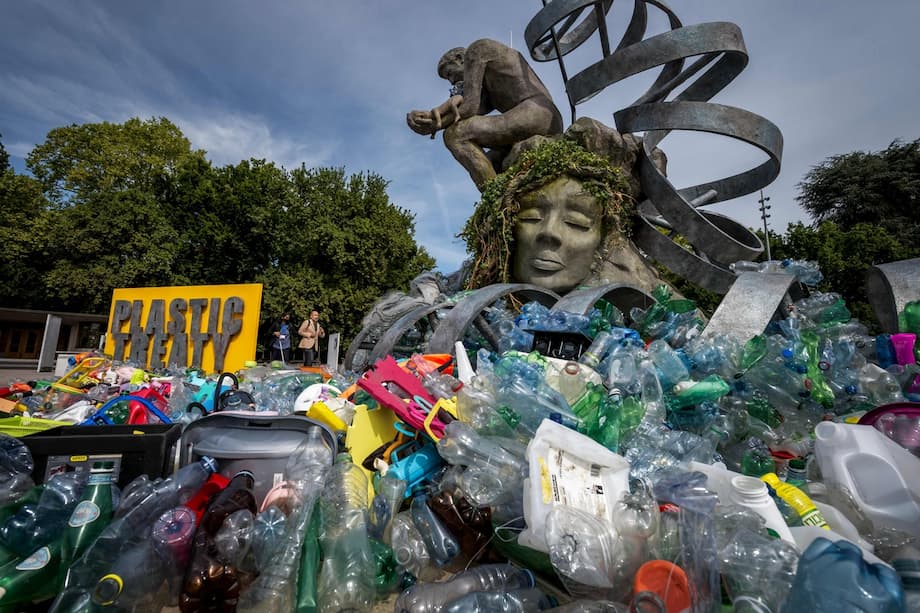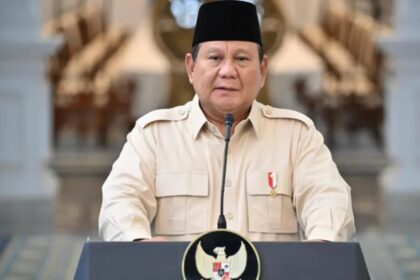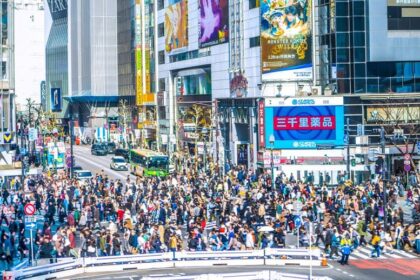South Korea’s Plastic Dilemma: Bold Promises, Cautious Action
South Korea has positioned itself as a climate leader on the world stage, making bold pledges to phase out plastics and tackle pollution. Yet, as recent events have shown, the gap between rhetoric and reality remains wide. At home and abroad, the country’s struggle to deliver on its zero-plastic ambitions reveals a complex web of economic interests, cultural habits, and international diplomacy that make meaningful progress elusive.
- South Korea’s Plastic Dilemma: Bold Promises, Cautious Action
- Why Is Going Zero-Plastic So Difficult for South Korea?
- Global Treaty Talks: High Hopes, Deep Divisions
- Domestic Policy: Ambition Meets Resistance
- International Pressure and Public Advocacy
- Technological and Regional Solutions: The Path Forward
- In Summary
In the summer of 2025, South Korea hosted a pivotal round of United Nations-led negotiations in Busan, aiming to finalize a global treaty to end plastic pollution. The world watched as more than 3,300 delegates from 170 nations gathered, hoping for a breakthrough. Instead, the talks collapsed without agreement, exposing deep divisions—and highlighting South Korea’s own hesitancy to commit to binding rules.
Why Is Going Zero-Plastic So Difficult for South Korea?
South Korea’s reluctance to fully embrace zero-plastic policies is rooted in its economic structure. The country is home to some of the world’s largest petrochemical producers, including LG Chem, Lotte Chemical, and Hanwha Solutions. These conglomerates manufacture the resins and plastics that supply industries from packaging and consumer goods to cars and electronics. Any attempt to cap plastic production or impose strict bans on single-use products would directly impact these industrial giants, threatening export competitiveness and domestic jobs.
These companies wield enormous political influence. As cornerstones of the Korean economy, their interests are closely guarded by policymakers. Professor Jeong Su-jong of Seoul National University’s Department of Environmental Management explains:
“While Korea is a heavy consumer of plastics, it is also a global supplier of petrochemicals, which are among the top export earners, along with semiconductors, steel, and cars. The government is wary of imposing strict caps on plastic production not only because of domestic consumption, but also because of the industry’s contribution to trade revenue.”
This economic reality shapes Korea’s diplomatic stance. Rather than siding with the so-called High Ambition Coalition—countries pushing for strict, binding caps on plastic production—Korea has positioned itself in the middle, advocating for softer language and voluntary commitments. This balancing act preserves ties with both environmental advocates and industry, but leaves Korea without a clear stance on binding international rules.
Global Treaty Talks: High Hopes, Deep Divisions
The Busan negotiations were billed as a make-or-break moment for global action on plastic pollution. Delegates faced a sprawling draft treaty, filled with contradictory options and bracketed text reflecting unresolved disputes. The most contentious issues included:
- Whether to cap global plastic production
- Bans on hazardous chemicals in plastics
- How to finance implementation, especially for developing nations
- Whether to address the entire lifecycle of plastics or focus only on waste management
Countries in the High Ambition Coalition, including many African, Asian, and European nations, called for binding targets to reduce production and redesign products for reuse and recycling. Oil-producing nations, led by Saudi Arabia and Russia, argued for a focus on waste management and recycling, resisting any limits on production.
South Korea, despite its public pledges, aligned with those advocating for compromise and softer language. The talks ended with only a preliminary “Chair’s Text” to guide future discussions, and the process was adjourned until 2025. Inger Andersen, Executive Director of the United Nations Environment Programme, acknowledged the progress but emphasized the challenges:
“The world’s commitment to ending plastic pollution is clear and undeniable, but persisting divergence remains in key areas. More time is needed to address these.”
Environmental groups, including Greenpeace, were vocal in their criticism. During the talks, activists boarded a tanker in Busan to protest the export of toxic plastic chemicals, calling on governments to resist industry lobbying and deliver a treaty that cuts plastic production. Greenpeace estimates that at least a 75% cut in plastic production by 2040 is needed to avert environmental and climate disaster.
Domestic Policy: Ambition Meets Resistance
South Korea’s struggle is not limited to international forums. At home, the government has introduced sweeping rules to cut single-use plastics, including bans on disposable cups and straws and a deposit scheme for takeaway containers. However, these efforts have repeatedly faltered under industry resistance and public pushback.
Many measures have been watered down or reintroduced as voluntary programs, with only willing businesses or local governments participating. For example, a 2022 deposit scheme for takeaway cups—modeled after Germany’s successful Pfand system—quickly collapsed due to opposition from cafe owners and limited support from the public. Regulations on disposables in cafes and restaurants met similar resistance.
This pattern reveals a deeper challenge: changing daily habits in a society built on convenience. According to the Ministry of Environment, the average South Korean throws away up to 37 grams of single-use disposables per day, with plastic accounting for 40% of that waste. The culture of convenience, reinforced by fast-paced urban life and a booming food delivery industry, makes it difficult to shift away from disposables.
The Cultural Challenge: From Convenience to Sustainability
Environmental activists argue that bans alone are not enough. Heo Seung-eun of Green Korea United emphasizes the need for gradual, incentive-based policies that align with people’s lifestyles:
“Sudden bans on plastic and other single-use disposables can create backlash. A step-by-step approach gives time for adaptation. In the first year, target major cafe chains; in the third year, restaurant franchises; in the fifth year, convenience stores and delivery packaging. This lets people and businesses get familiar with shifting away from disposables little by little.”
Such measures could include nationwide incentives, like discounts for customers who bring reusable cups, or establishing shared cup networks that allow reusable cups to be returned across multiple cafes. The goal is to make sustainable choices as convenient as disposables, rather than fighting against ingrained habits.
International Pressure and Public Advocacy
South Korea’s cautious approach has drawn criticism from civil society and international observers. During the Busan treaty talks, more than 1,500 activists marched to demand robust action. Greenpeace highlighted the presence of over 220 petrochemical lobbyists at the negotiations—the highest number so far—underscoring the influence of industry on the process.
Japan, Taiwan, and South Korea’s petrochemical industries are among the largest contributors to plastic pollution and the climate crisis in Asia. South Korea, in particular, is the largest producer of plastic waste in the OECD and the fourth largest petrochemical producer globally. Environmental groups warn that without decisive action, Korea risks losing influence over the international treaty and becoming a passive player, merely reacting to others’ proposals.
World Environment Day 2025, celebrated in Jeju Province, Republic of Korea, brought further attention to the issue. UN Secretary-General António Guterres called for urgent change, including steps toward reusability, accountability, and policies to reduce single-use plastics. The event highlighted Korea’s campaigns to reduce single-use plastics and its aim to end plastic pollution by 2040, but also underscored the need for collective action and a circular economy approach.
Technological and Regional Solutions: The Path Forward
While policy and cultural change are essential, technological innovation also offers hope. Traceability technologies—such as blockchain platforms and digital waste management systems—can provide transparency and accountability in the plastics supply chain. These tools enable companies to verify recycled content, comply with regulations, and build consumer trust. However, challenges remain, including insufficient funding, regulatory uncertainty, and data infrastructure limitations.
International cooperation is also key. South Korea is supporting regional efforts to combat marine plastic pollution, such as the International Union for Conservation of Nature’s (IUCN) project in the Pacific. By promoting circular economy practices and strengthening national capacities in countries like Samoa, Vanuatu, and Tonga, Korea is contributing to broader solutions that address the interconnected challenges of climate change, biodiversity loss, and pollution.
Experts argue that a combination of mandatory reduction targets, industry support, public incentives, and technological innovation is needed to break the cycle of ambitious pledges that collapse under resistance. Stable regulations, clear data standards, and partnerships across the value chain can help build a sustainable plastics economy.
In Summary
- South Korea faces significant challenges in turning its zero-plastic ambitions into reality, due to economic dependence on petrochemicals, political influence of industry, and deeply ingrained convenience culture.
- At global treaty talks in Busan, Korea adopted a cautious, middle-ground stance, resisting binding commitments and aligning with those favoring voluntary measures.
- Domestic policies to cut single-use plastics have repeatedly faltered under industry and public resistance, revealing the difficulty of changing daily habits.
- Environmental activists and international observers call for gradual, incentive-based approaches and stronger government leadership to reduce plastic reliance.
- Technological innovation and regional cooperation offer promising solutions, but require stable regulations, funding, and broad stakeholder engagement.
- The outcome of ongoing treaty negotiations will have far-reaching implications for Korea’s environmental leadership and the global fight against plastic pollution.












